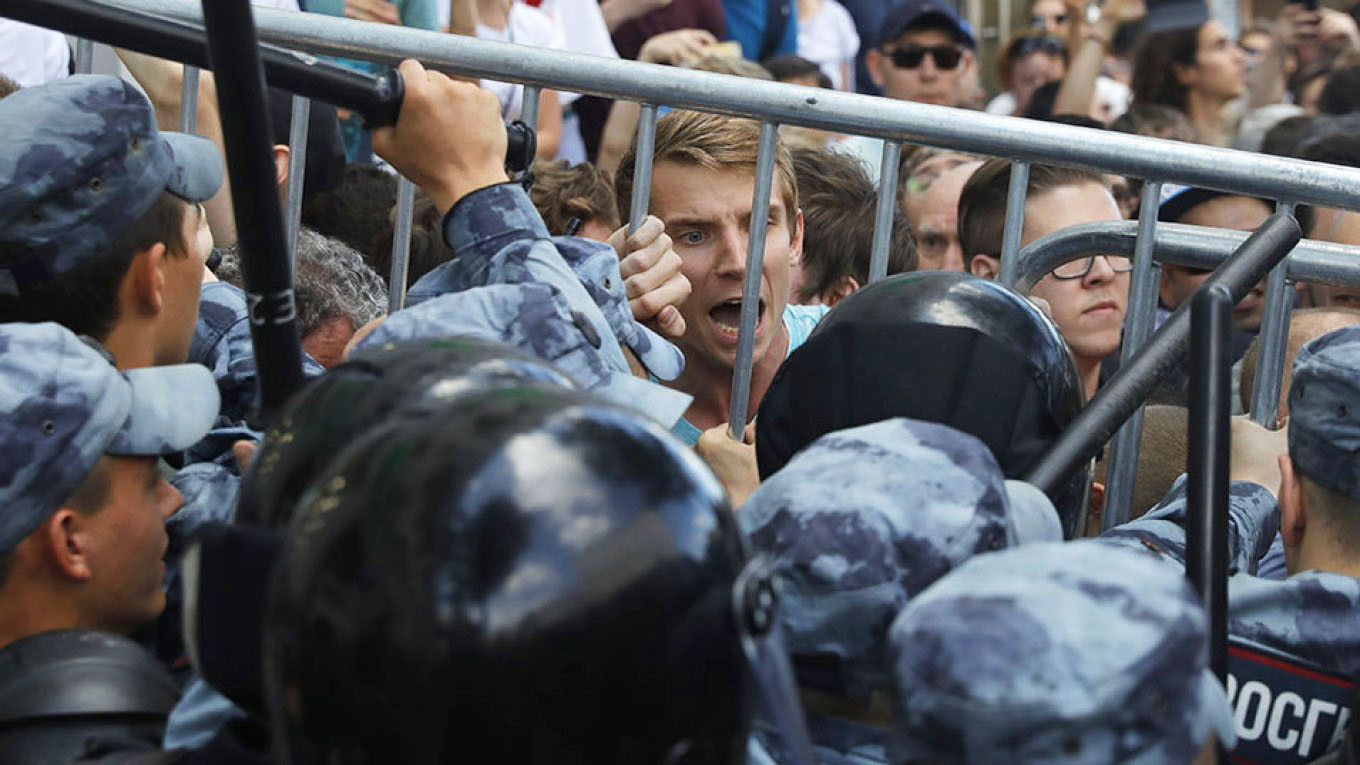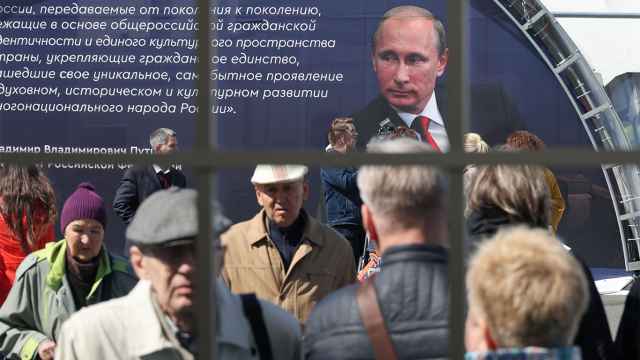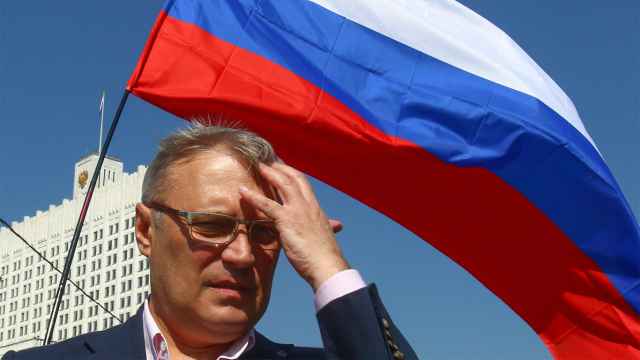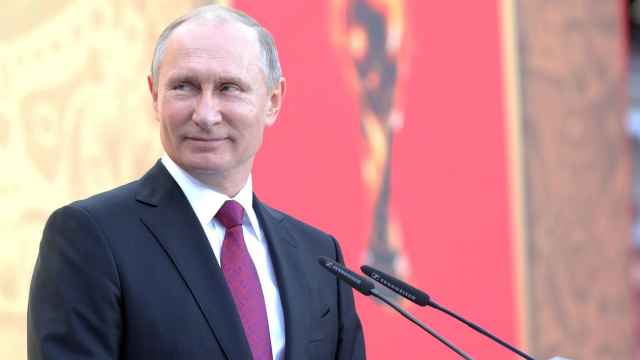The year in domestic affairs came to a close just like the year before: with a surprise protest in Russia’s far north, hundreds of kilometers away from the country’s beating political heart of Moscow.
In Kotlas, a town in the Arkhangelsk region with a population of 60,000, several thousand people came out at the beginning of December to protest a plan to transport Moscow’s trash to far-flung regions. This was surprising both for the large segment of the town that made up the protest, and because the discontent which had first bubbled over a year earlier hadn’t faded. The demonstration was a sign of the times.
Buoyed by economic stagnation and endemic corruption, Russia has seen a rising tide of protests over the past year. According to the Moscow-based Center for Social and Labor Rights NGO, only two of Russia’s 86 regions did not see protests between April and June in 2019.
The demonstrations have covered a wide range of reasons, including displeasure over the building of a new church in the Urals city of Yekaterinburg on the site of a popular public square and an uproar in the small North Caucasus republic of Ingushetia over a land-swap with neighboring Chechnya.
Most prominently, Russia’s capital saw the largest sustained protests in years this summer over a decision to block opposition candidates from running in Moscow’s city council elections.
The authorities rode out that dissent using their now-familiar tactic of snuffing it out. But, political analysts tell The Moscow Times, they now have more serious domestic political projects on their hands that will already need to be taken into consideration next year. Chief among these are the State Duma elections in 2021 and the presidential elections in 2024, when Vladimir Putin will have to step down as president according to the constitution.
“The authorities are highly concerned about maintaining stability,” said political analyst Maria Lipman. “This implies that the government wants to see people demobilized and acquiescent to its policies.”
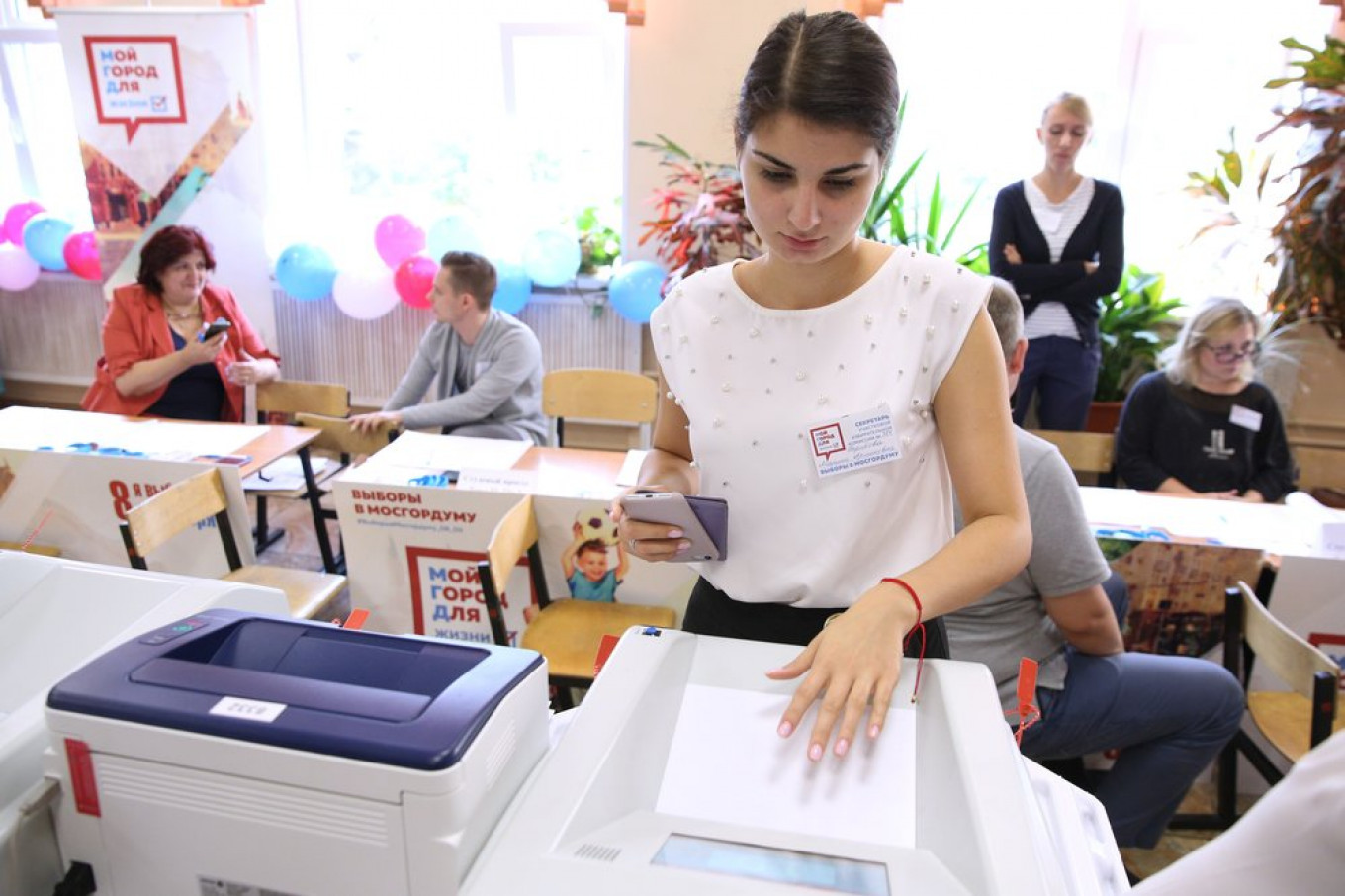
Tatiana Stanovaya, founder of the political analysis project R.Politik:
I’ll be paying attention to the regional elections in September because, depending on how they turn out, that will provide the roadmap for the State Duma elections — and those are the intermediate step in Putin’s final term as he decides in what way he’ll keep participating in government after 2024. It’s a three-stage process, with the first step being the regional elections next year.
How the elections will be handled will depend on the authorities’ ratings, the country’s protest mood and on the general economic situation. We will see if the Kremlin is ready to repeat the 2019 scenario, when opposition politicians were blocked from running across the board in regional elections. I don’t see the authorities having come up with alternative option so far, so let’s see if this scheme will work next year.
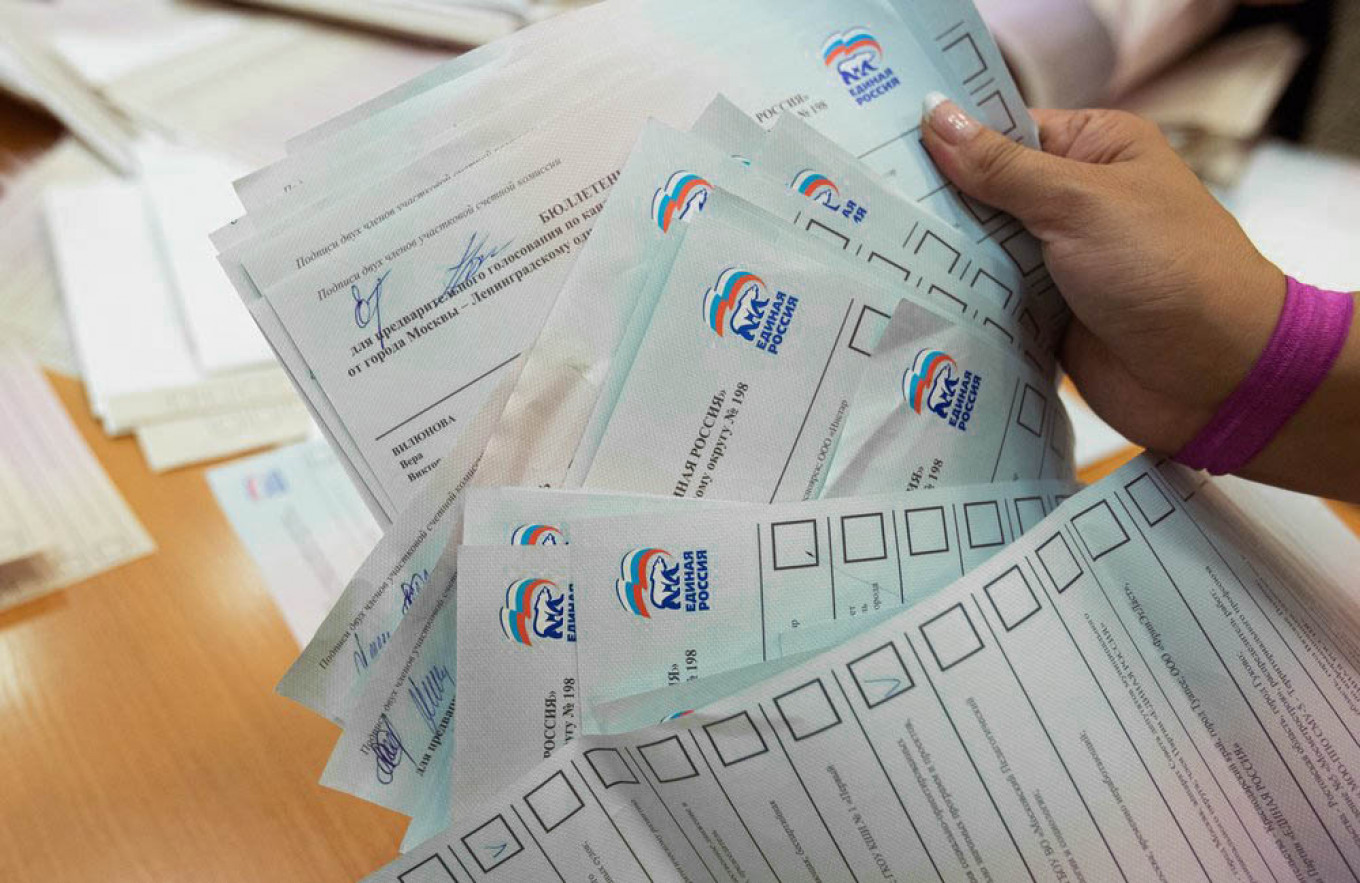
Andrei Kolesnikov, chair of the Russian Domestic Politics and Political Institutions Program at the Carnegie Moscow Center:
It is clear that the authorities are trying to regain control over the dissatisfaction in the regions by giving the ruling United Russia party a fresh restart. The problems for them became clear in the 2018 regional elections with the protest vote phenomenon, when voters started going for any candidate but those balloting from United Russia because the party had become that toxic.
In the last elections United Russia candidates ran as independents and this was a risky strategy. But after the elections, the authorities made a point of saying we have to stop being embarrassed about being United Russia, stop believing that the party is toxic. In principle, it looks like the authorities want to save the party as one of its most important instruments in maintaining power and will be continuing this work next year ahead of the Duma elections, which will be very important for the authorities. They will need to make sure it keeps a majority in parliament ahead of 2024 so the Duma can smoothly determine what role Putin will take on.
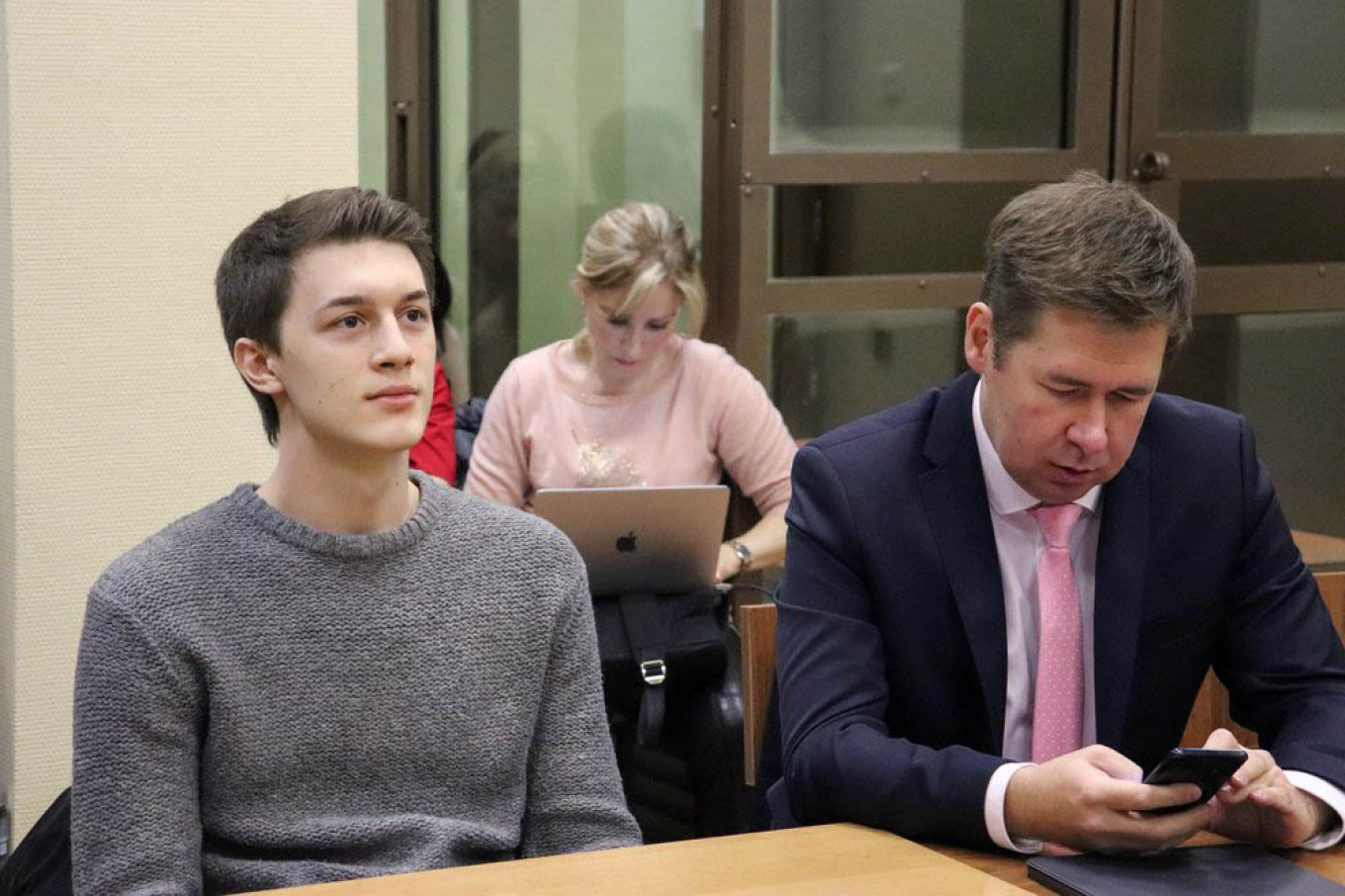
Maria Lipman, editor of Point & Counterpoint:
What is important to watch is the government’s relationship to society. The government regards the public not as a party to reckon or negotiate with, but as a serious factor to deal with and handle. In 2019, the authorities once again demonstrated their ability to recalibrate and be flexible. While in general the regime has become more repressive, it can occasionally soften its policy, like releasing on a suspended sentence 21-year-student Yegor Zhukov who was facing years in prison for his role in the Moscow protests — arguably in response to a public outcry.
At the same time, we are seeing Russian civil society become better at organizing around civic initiatives or concrete socioeconomic causes and show more tenacity, as we’ve seen, for example, in Arkhangelsk and Yekaterinburg. But there are two points to make here. One is that citizens are still reactive, responding to the actions of the authorities they take displeasure with, rather than having a positive political project. And the authorities have demonstrated their superior power vis-à-vis society. This dynamic is unlikely to change in 2020.
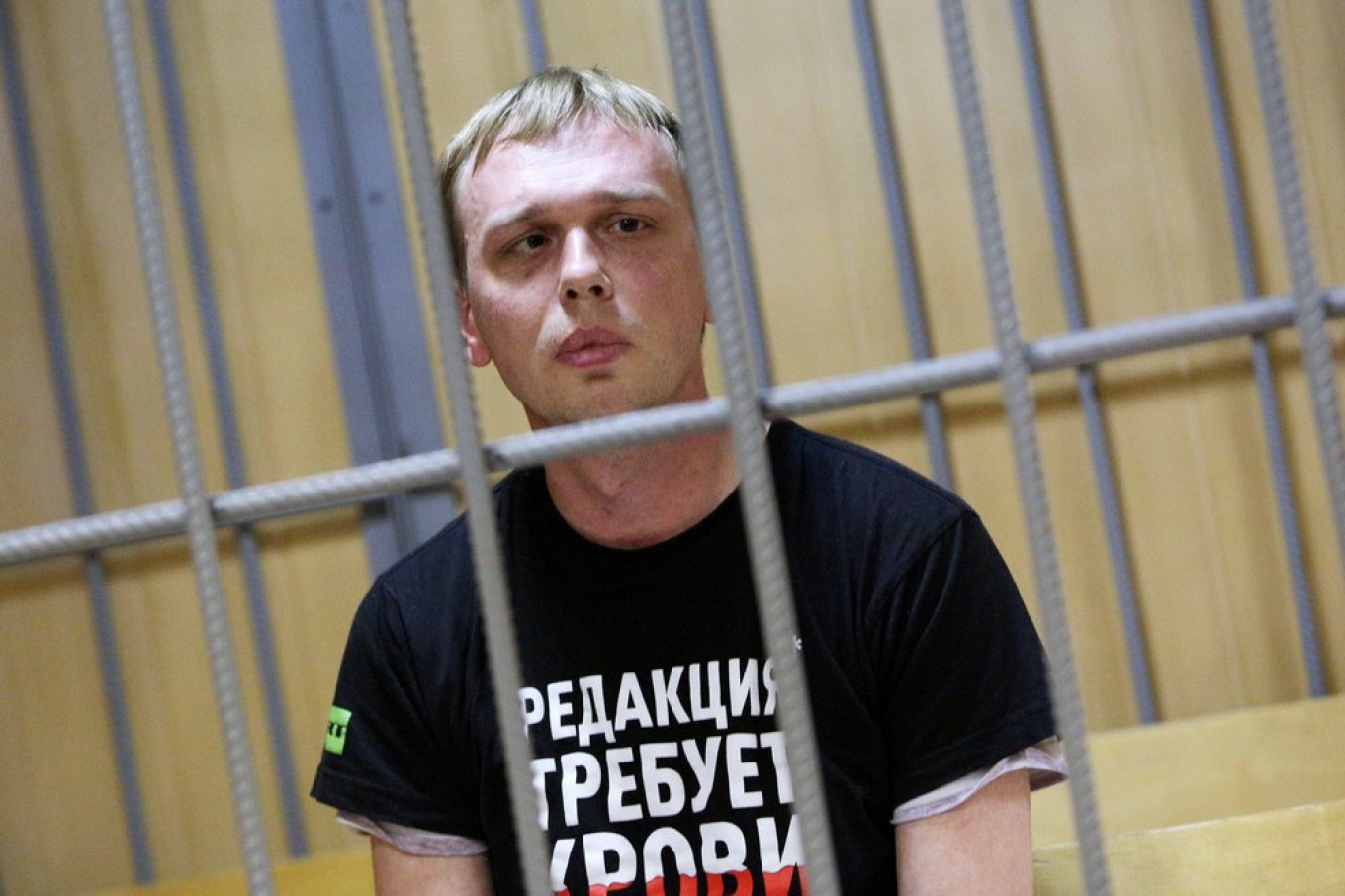
Yekaterina Schulmann, a political analyst specializing in lawmaking:
The Justice Ministry is developing a new set of amendments to the administrative code that is expected to be ready at some point next year. Administrative offences have become the most widely-applied instrument of legal repression that the authorities use to stomp out dissent. Although there have been no concrete details as of yet, there are talks of raising fines, which are one of the favorite tools of law enforcement. There are also talks of lowering the age of legal responsibility for administrative offences to 14.
This will affect all protests — which we can expect more of next year. While it’s hard to predict, of course, we can say that the protest mood is growing and that, at the least, it's unlikely that there will be less protests in 2020 than this year. As for what people will protest about — that’s hard to predict. Could we have predicted that the authorities would arrest the journalist Ivan Golunov and that it would trigger such a chain of reactions?
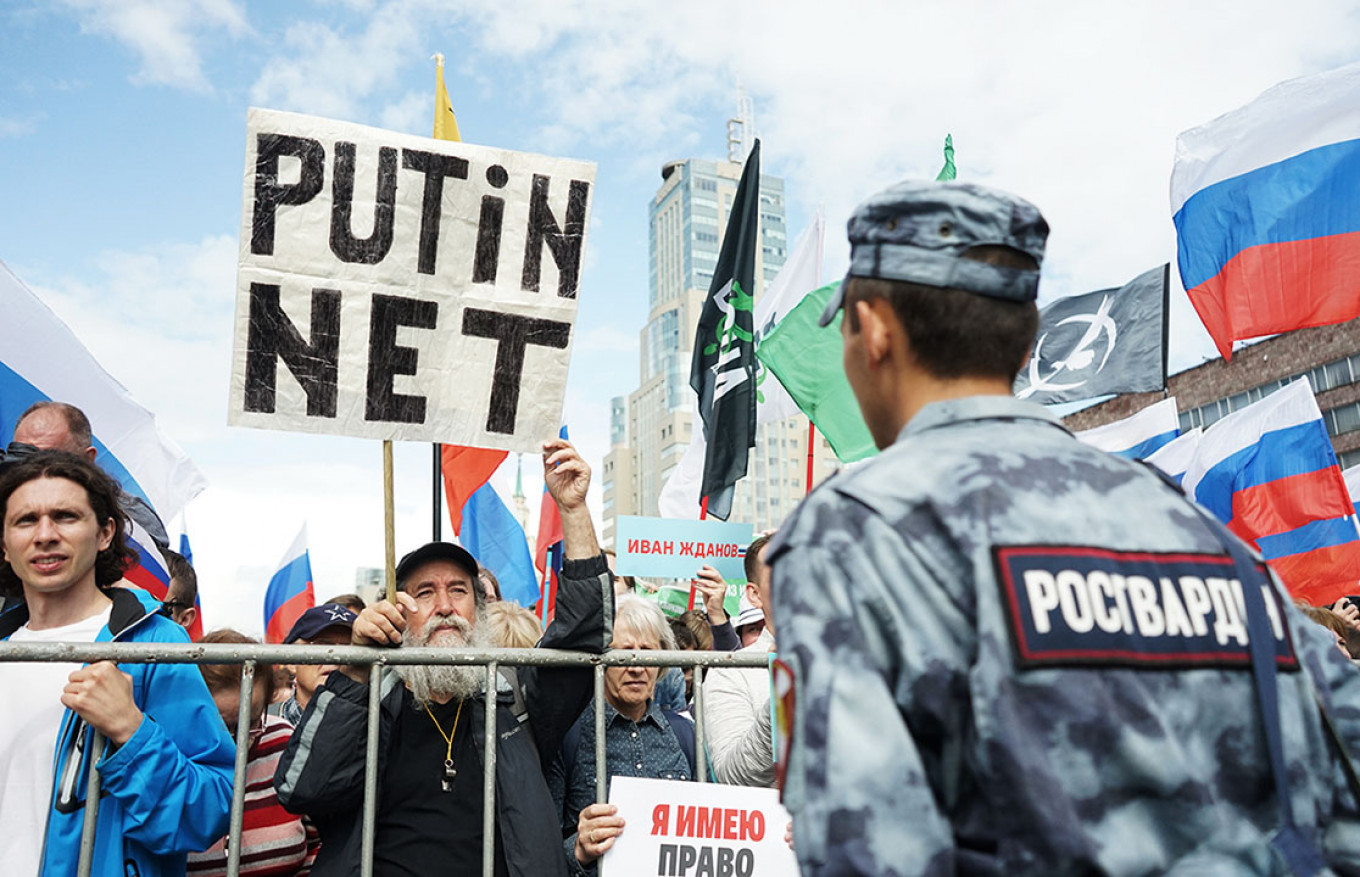
Dmitry Oreshkin, an independent political scientist:
It will be important to determine next year how much of Strategy 2020, formulated in 2008 to help spur economic growth, has actually been implemented. As far as I understand, our minimum wage is currently at half of what was recommended under that document. And of course, we’re in the midst of economic zastoi — stagnation — to use the Soviet term, which is what is fueling the discontent that we’re seeing. And just like at the end of the Soviet era, people are still mostly scared of protesting on a political level, so they express their dissatisfaction over something like ecological issues. In that era, we also saw protests become increasingly prominent over issues that weren't directly political.
So I’m not saying that we will be seeing revolution or regime change, like Putin’s critics would want. But we will keep seeing protests, as well as increased laughter at the government, like we began seeing increasingly this year. Which, again, is just like at the end of the Soviet period, when people used humor to make light of all the five-year plans coming to nothing.
A Message from The Moscow Times:
Dear readers,
We are facing unprecedented challenges. Russia's Prosecutor General's Office has designated The Moscow Times as an "undesirable" organization, criminalizing our work and putting our staff at risk of prosecution. This follows our earlier unjust labeling as a "foreign agent."
These actions are direct attempts to silence independent journalism in Russia. The authorities claim our work "discredits the decisions of the Russian leadership." We see things differently: we strive to provide accurate, unbiased reporting on Russia.
We, the journalists of The Moscow Times, refuse to be silenced. But to continue our work, we need your help.
Your support, no matter how small, makes a world of difference. If you can, please support us monthly starting from just $2. It's quick to set up, and every contribution makes a significant impact.
By supporting The Moscow Times, you're defending open, independent journalism in the face of repression. Thank you for standing with us.
Remind me later.



